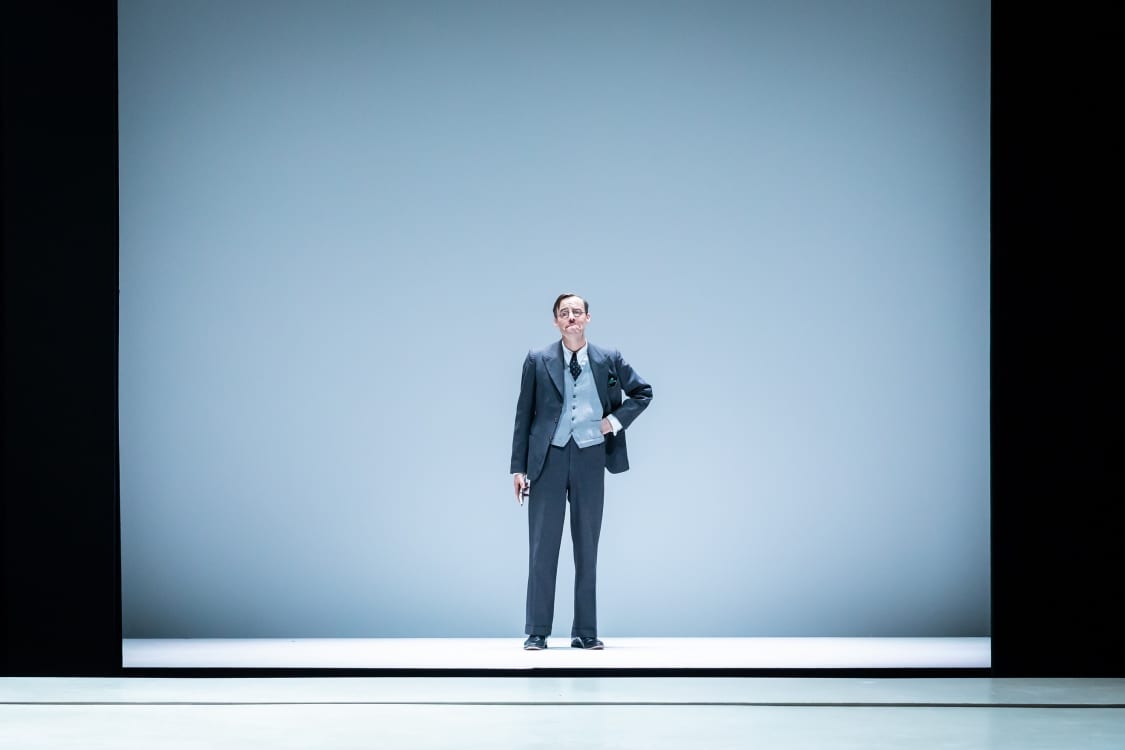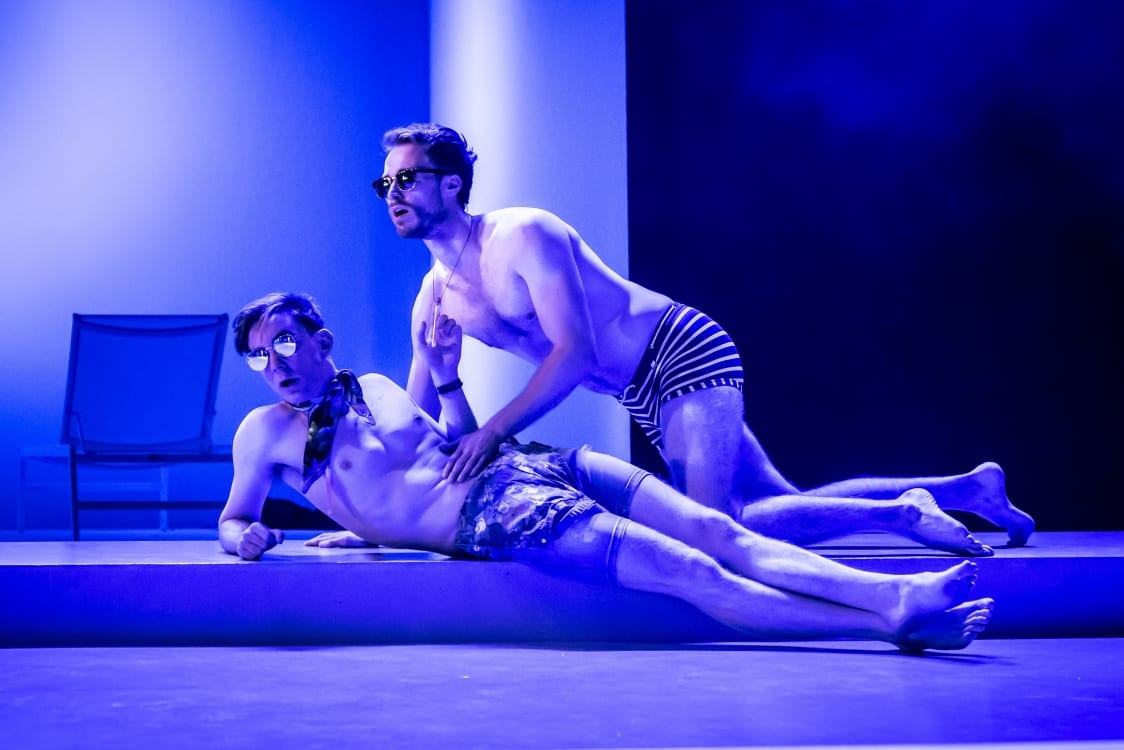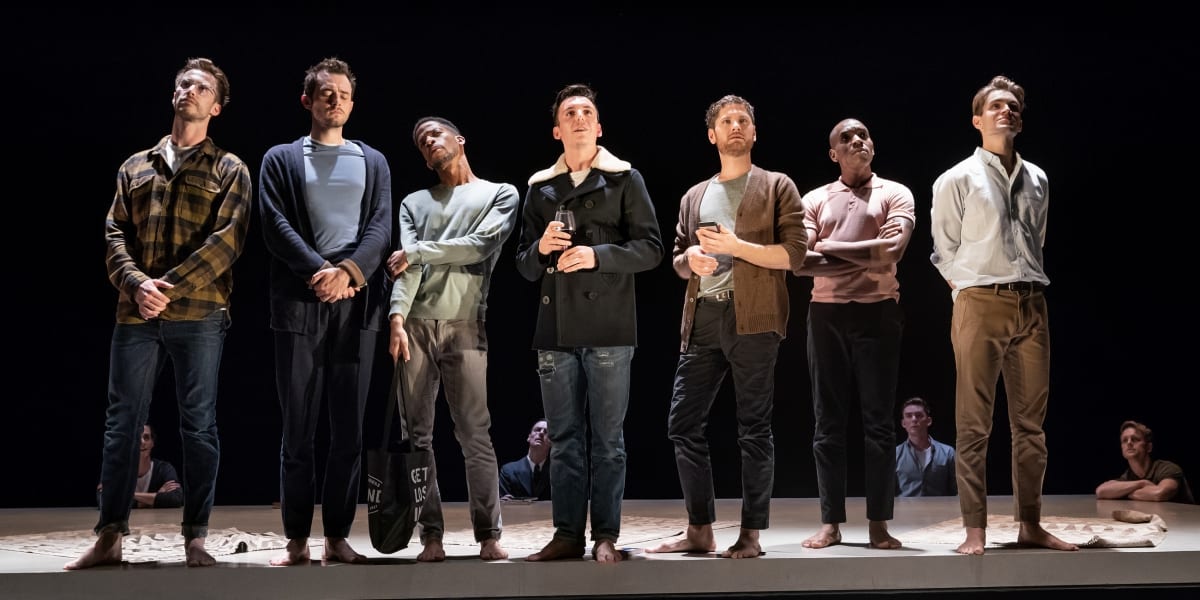This new play by Matthew Lopez transfers to the West End trailing a glowing portfolio of reviews and with most of its original cast. The production, directed by Stephen Daldry, runs to six hours of playing time and is divided into two equal parts, which can be viewed in sequence or separately. This is just one of several ways in which comparisons can be made with ‘Angels in America’, and mostly in this play’s favour. In fact it is fair to say that this is in both ambition and achievement the most important new play of the year to date, which every theatre-goer really should make an effort to see.

The starting point for us, just as for the author, is E.M.Forster’s ‘Howards End’. There are many parallels of structure and character between that novel and this play, though it is far from being a simple adaptation. Instead Lopez teases out the theme of inheritance on a number of levels and with great subtlety and humane nuance. Yes, there is the literal question of the inheritance of a country house, an ideal of rural escape and healing for those it touches. But there is also the question of inheritance between generations – can we escape our upbringing, whether nurturing or disruptive? How can the lessons of one generation be passed on to the next in a meaningful way? Or do we have to grow simply through our own trial and errors? Above all what are the unforeseen benefits of making an effort to connect with those with whom on the face of it we may have little in common?
All these themes are refracted through the lives of three generations of gay men living in New York between the 1980s and the present day. HIV/AIDS is of course a large theme too, as it has to be historically, but here seen more as a catalyst for examining the broader issues of how to live well in times of adversity. The set, lighting, sound and costume design are minimalist but masterly, with high-end apartments and Arcadian vistas suggested with precise economical gestures alongside mean streets and decadent parties. It is more than enough to abolish the artifice of the proscenium arch and take you into the heart of the action with total absorption and little sense of time passing.
What makes this production exceptional though is the sustained quality of the ensemble, whether expressed in exquisitely pointed monologues or group dynamics of peerless emotional range and depth. There are eleven players in all, taking up multiple roles, all communicated with lucidity, passion and grace. At the centre is Kyle Soller’s portrayal of Eric Glass, the character who grows most across the evening, taking us with him on his journey. It is so hard to play goodness and gentleness with nuance and sparkle, yet this is what Soller gives us. Alongside him, equal credit belongs to Andrew Burnap and Samuel H Levine. Burnap’s portrayal of the troubled yet talented Toby Darling offers brilliant-cut facets of a flawed character that give energy and humour to the evening at every point; and Levine’s double depiction of ambitious actor Adam, and damaged rent-boy Leo, is a technical marvel that reaches its peak when both characters appear together.
John Benjamin Hickey and Paul Hilton represent the voices of an older generation with great distinction. Hickey has the difficult task of playing a businessman in emotional denial, but he finds wry humour and generosity in the recesses of a role that seems unsympathetic on the surface. Hilton has a double role, which is fundamental to the success of the evening, indeed in some ways providing its central emotional underpinning. He initially appears as Morgan – a gentle re-incarnation of Forster himself – who guides the ensemble through the earlier stages of their story. Even richer though is his portrayal of Walter, the partner of Henry Wilcox, played by Hickey. The play flames into life during his first monologue in this role, and the core values he embodies of compassion and unflinching emotional honesty are what powers this remarkable play onwards through its long but entirely necessary trajectory. Vanessa Redgrave was indisposed on the night, but her understudy, Amanda Reed, offered an important female counterpoint of choric mourning in the final scenes.

Part One is more loosely written and generally more humorous and light in tone; whereas what follows is more tightly conceived, darker, more jagged and sobering. There is so much richly embedded here that one’s first reaction is to want to go back and see it again, and anyone who believes in the inter-penetration of life and literature should do so. Themes, scenes and lines buzz around in one’s mind for days afterwards. Its debates and dramas, hopes and defeats are those not merely of modern gay life, but the dilemmas and opportunities of any life that aspires to be fully lived.

